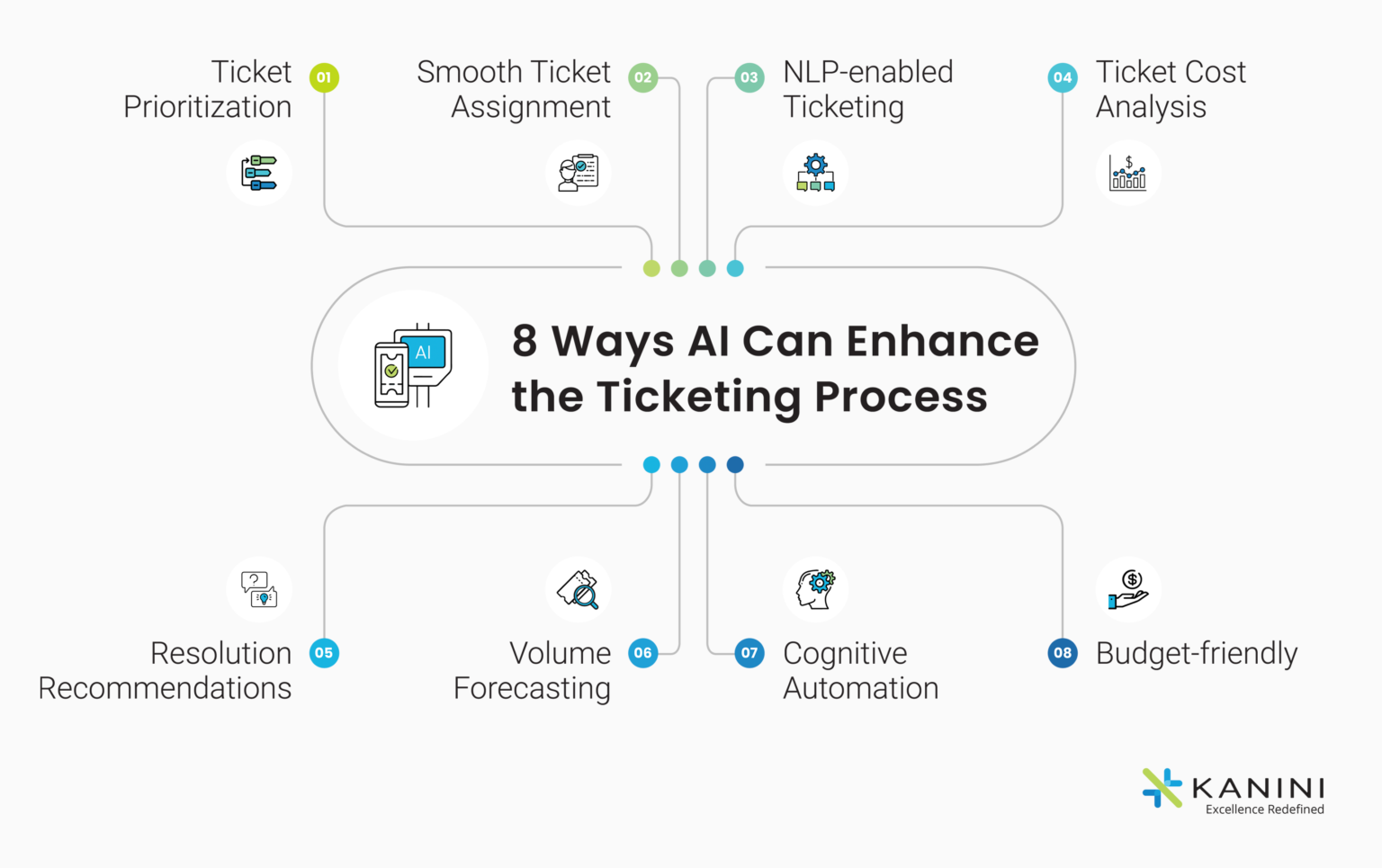Business success is highly dependent on how efficiently an enterprise handles its service requests. Users generate support request tickets when they encounter any issues with the product or services rendered by the enterprise. To meet customer/ user expectations promptly and deliver an enhanced service experience, enterprises need to prioritize resolving these issues quickly and efficiently to sustain themselves in the market.
Challenges Faced by Enterprises Using Pre-AI Ticketing Process
1. Time-consuming
2. Difficulty in classifying and assigning tickets to the right resource:
3. Repetitive ticket resolution:
4. No actionable insights:
How AI Helps Organizations Improve the Ticketing Process?
The problem with the current (pre-AI) ticketing systems is that they are rules-driven. Hence, despite having a lot of data within applications, a huge volume of this data goes unexplored and is not analyzed effectively to identify flaws in the system and use it towards building better applications.
A pattern recognition algorithm using AI can help in understanding the past patterns of tickets that are created, thereby allowing the analysts to get more insight into what aspects of applications are failing, and what solutions were provided.
AI-powered platforms can help transform business operations efficiently. Want to know how?
8 Ways AI Can Enhance the Ticketing Process

1. Ticket Prioritization
2. Smooth Ticket Assignment
3. NLP-enabled Ticketing
4. Ticket Cost Analysis
5. Resolution Recommendations
6. Volume Forecasting
7. Cognitive Automation:
8. Budget-friendly:
Conclusion
In today’s technology-driven business world, integrating advanced technologies like AI with current business processes is becoming a necessity. Being prepared to resolve a large number of service requests promptly and meeting customer expectations is the need of the hour in today’s highly competitive business world.
AI is becoming an indispensable part of most businesses today, minimizing errors caused by human intervention, reducing incidents, and ensuring a quick turnaround time on resolution. Furthermore, the AI-enabled ticketing process enhances user experience, increases employee productivity, and ensures quick, reliable, and consistent resolutions.
Besides, AI-driven ticket analytics enable seamless integration with ticket management tools for further operational enhancements. KANINI leverages AI-enabled technologies to facilitate support request processing and focuses on enhancing enterprise workflows. Contact us to understand more about how KANINI leverages AI to enhance your ticketing process.
Author

Anand Subramaniam
Anand Subramaniam is the Chief Solutions Officer, leading Data Analytics & AI service line at KANINI. He is passionate about data science and has championed data analytics practice across start-ups to enterprises in various verticals. As a thought leader, start-up mentor, and data architect, Anand brings over two decades of techno-functional leadership in envisaging, planning, and building high-performance, state-of-the-art technology teams.








